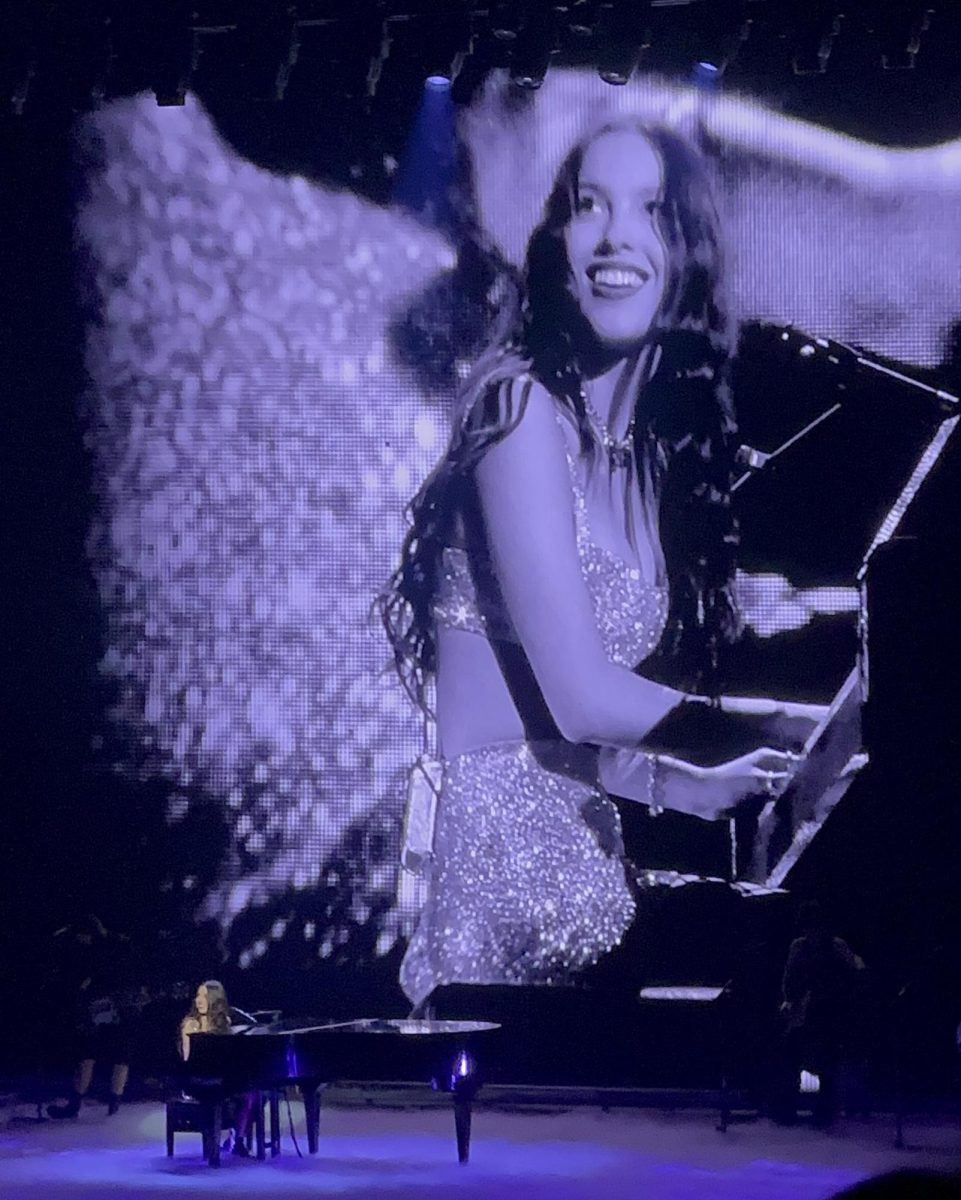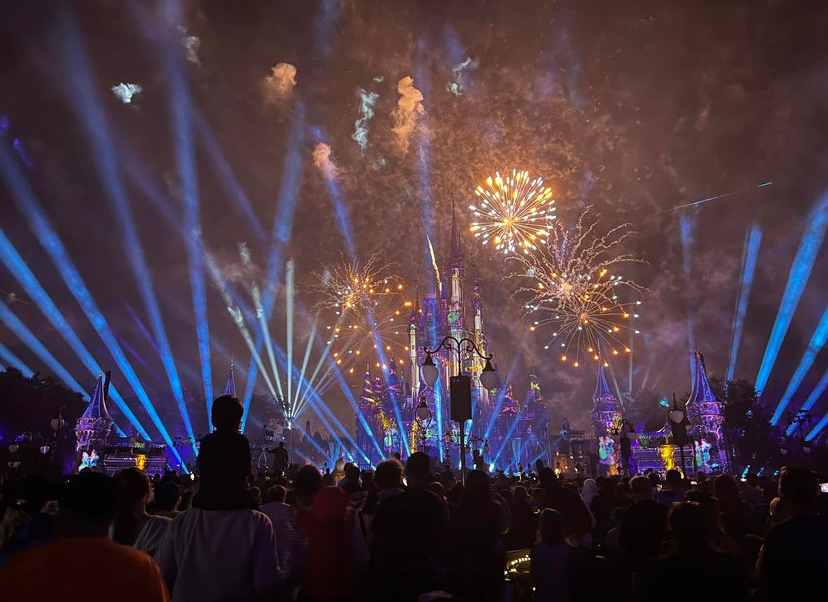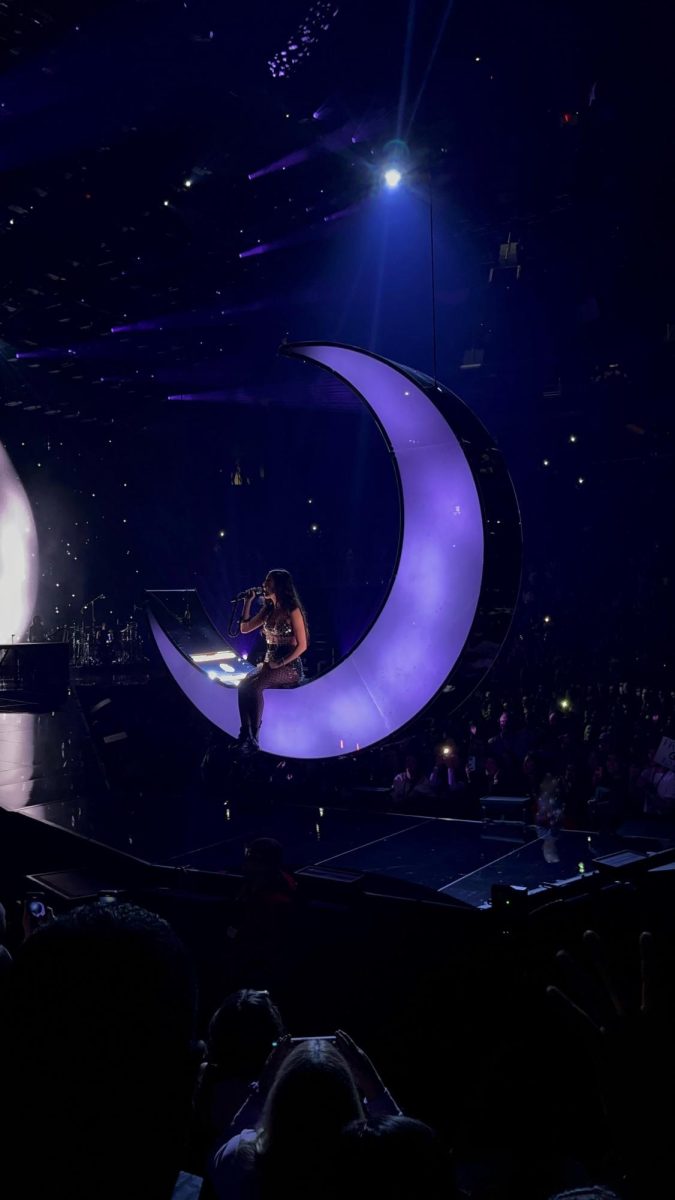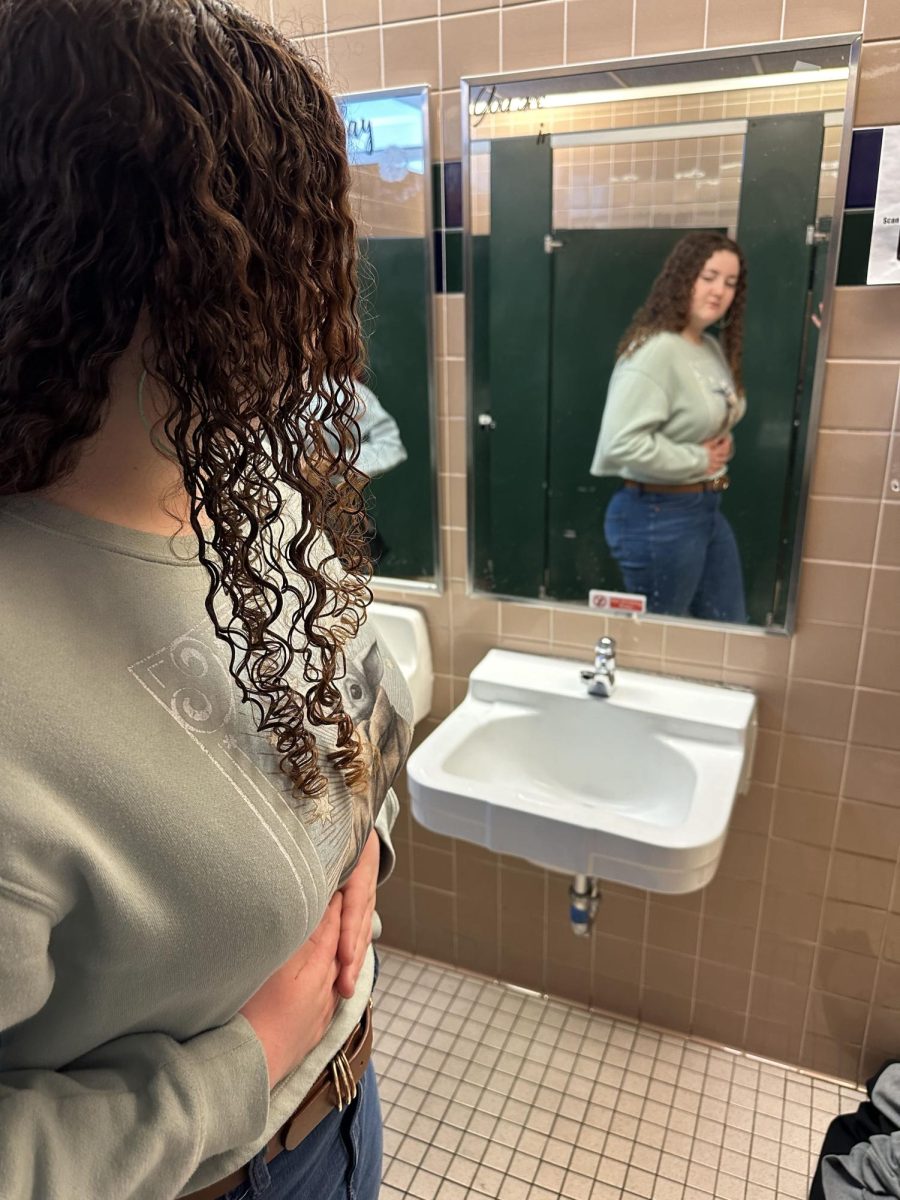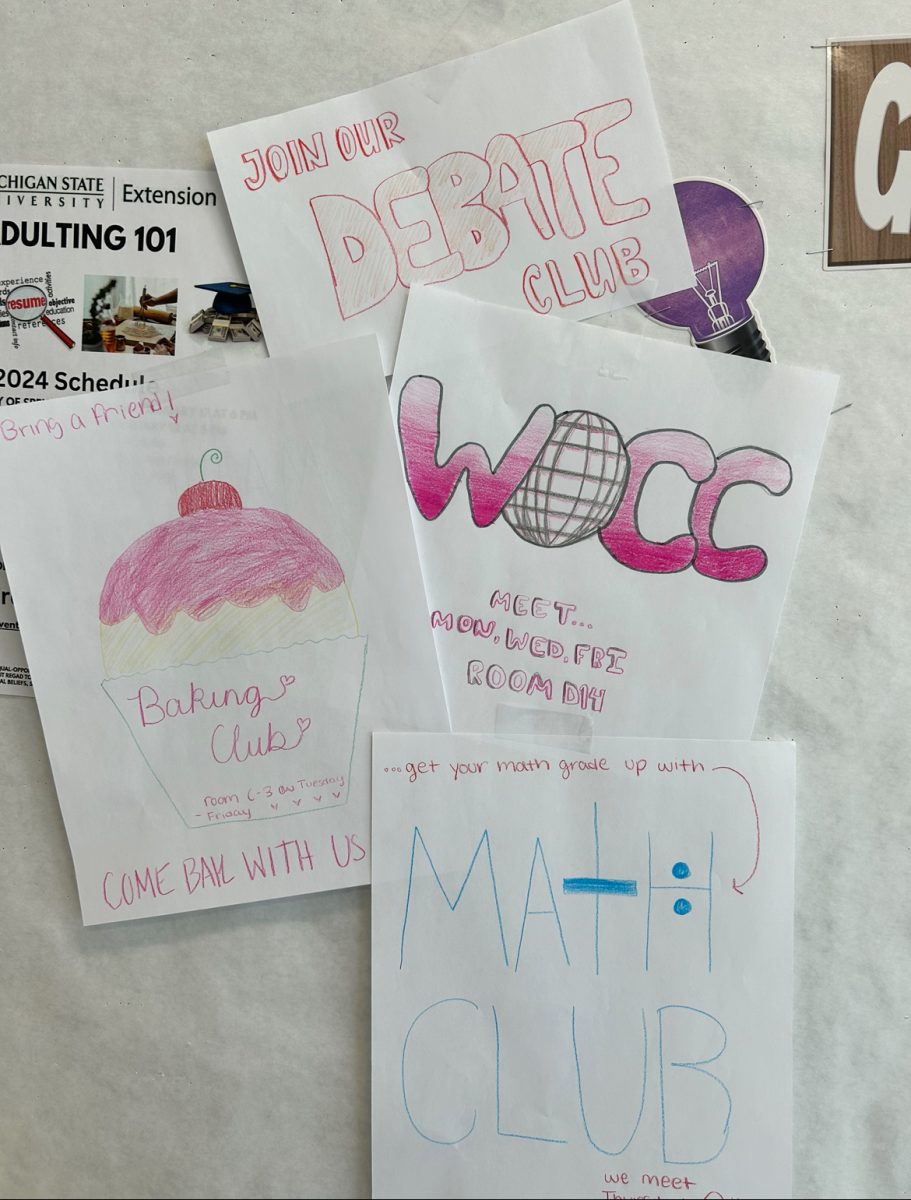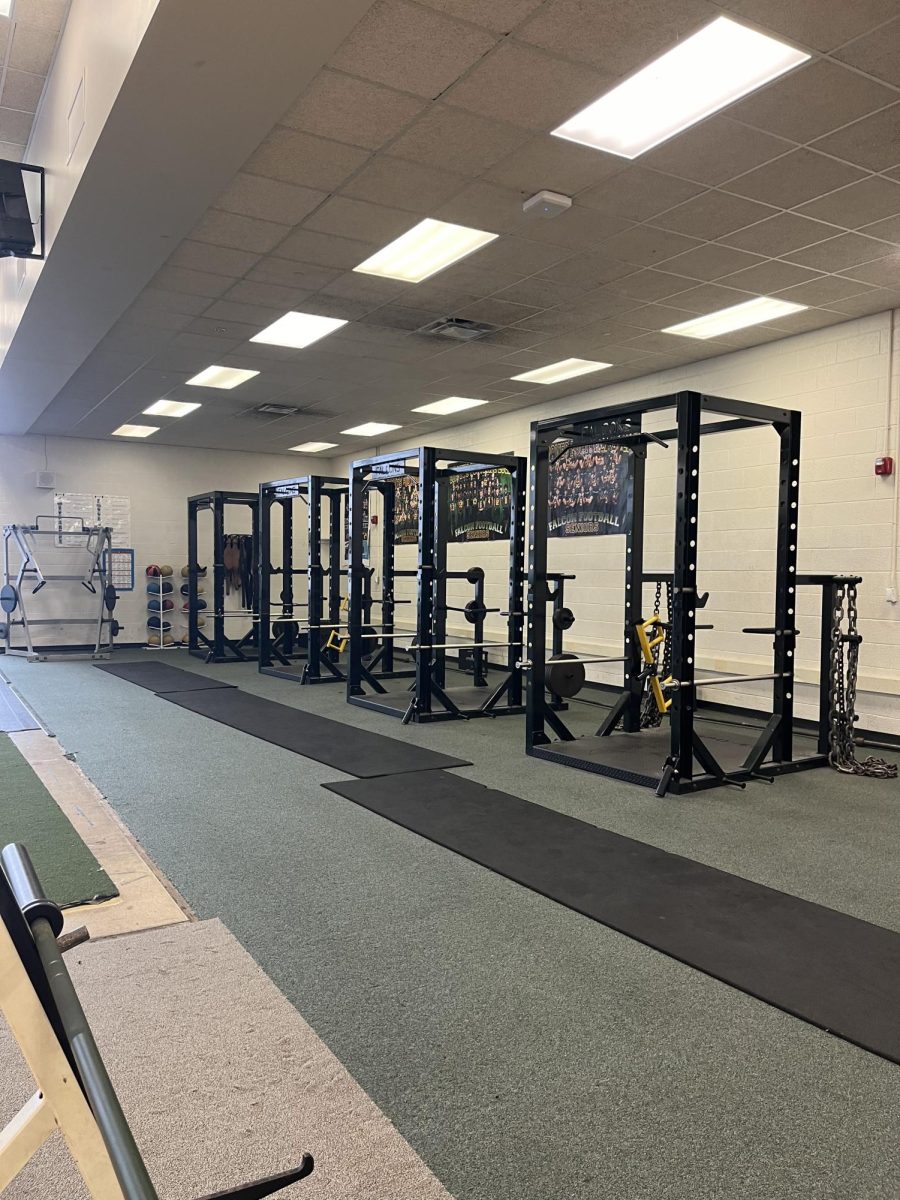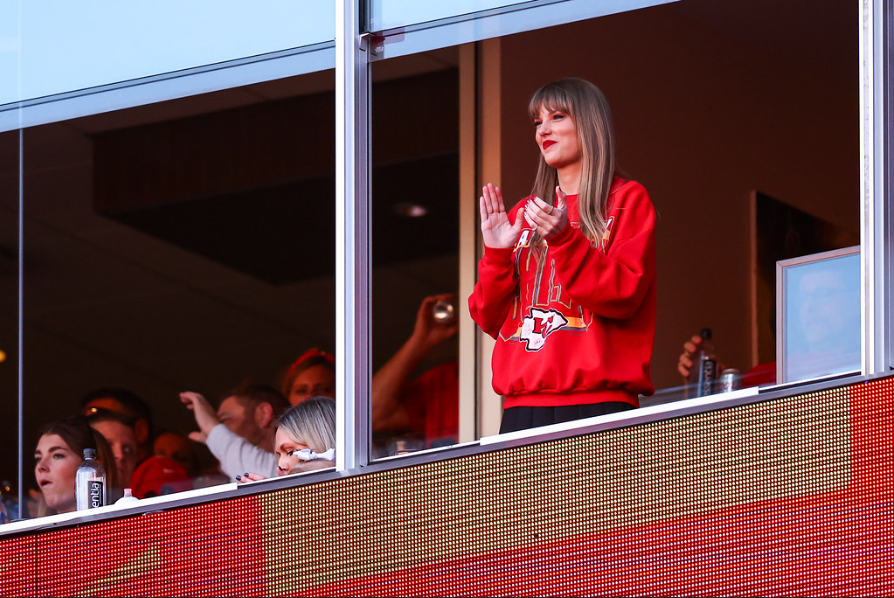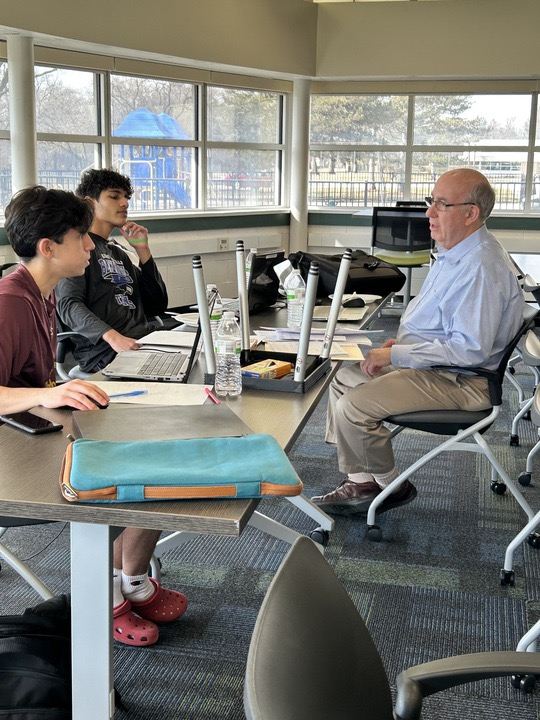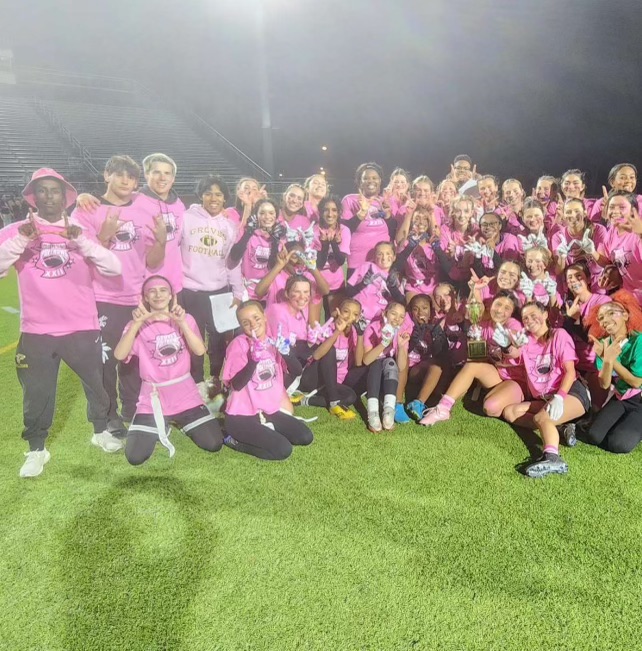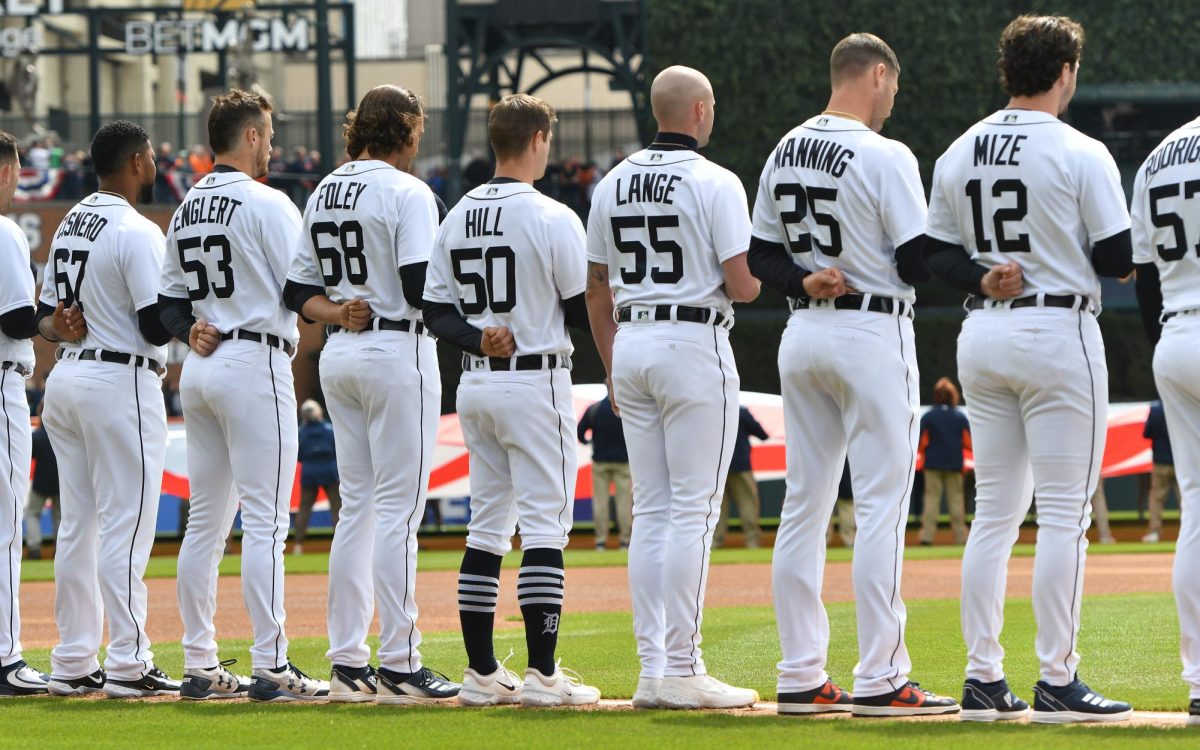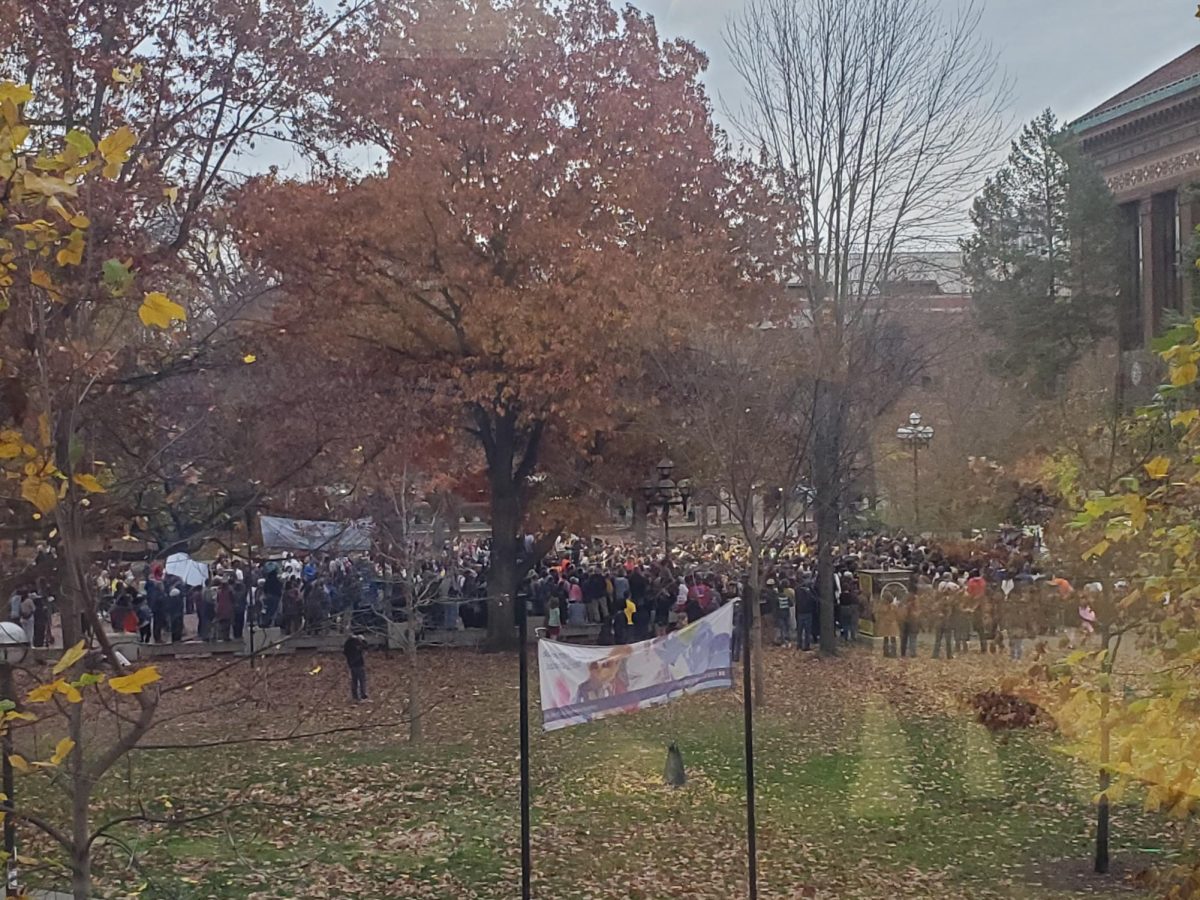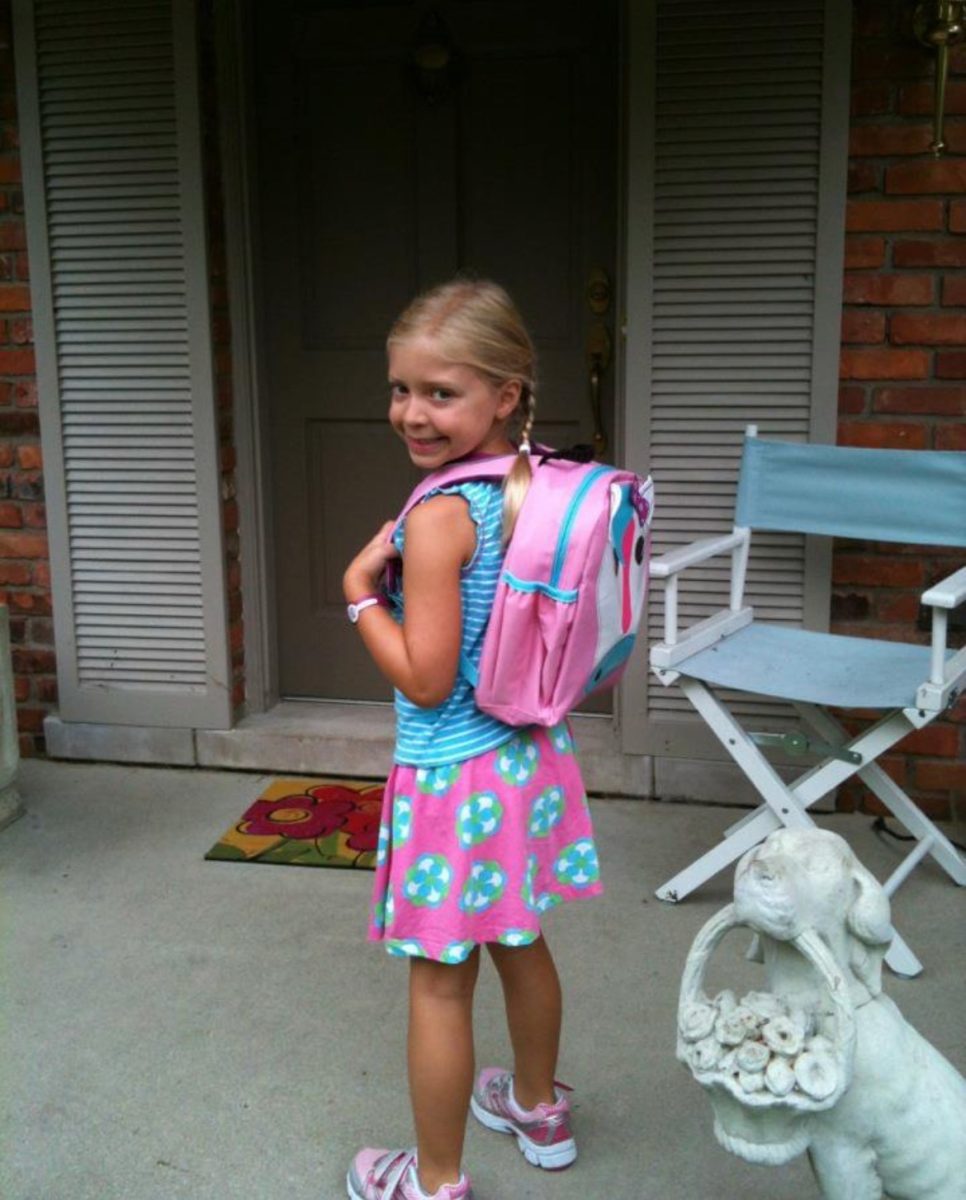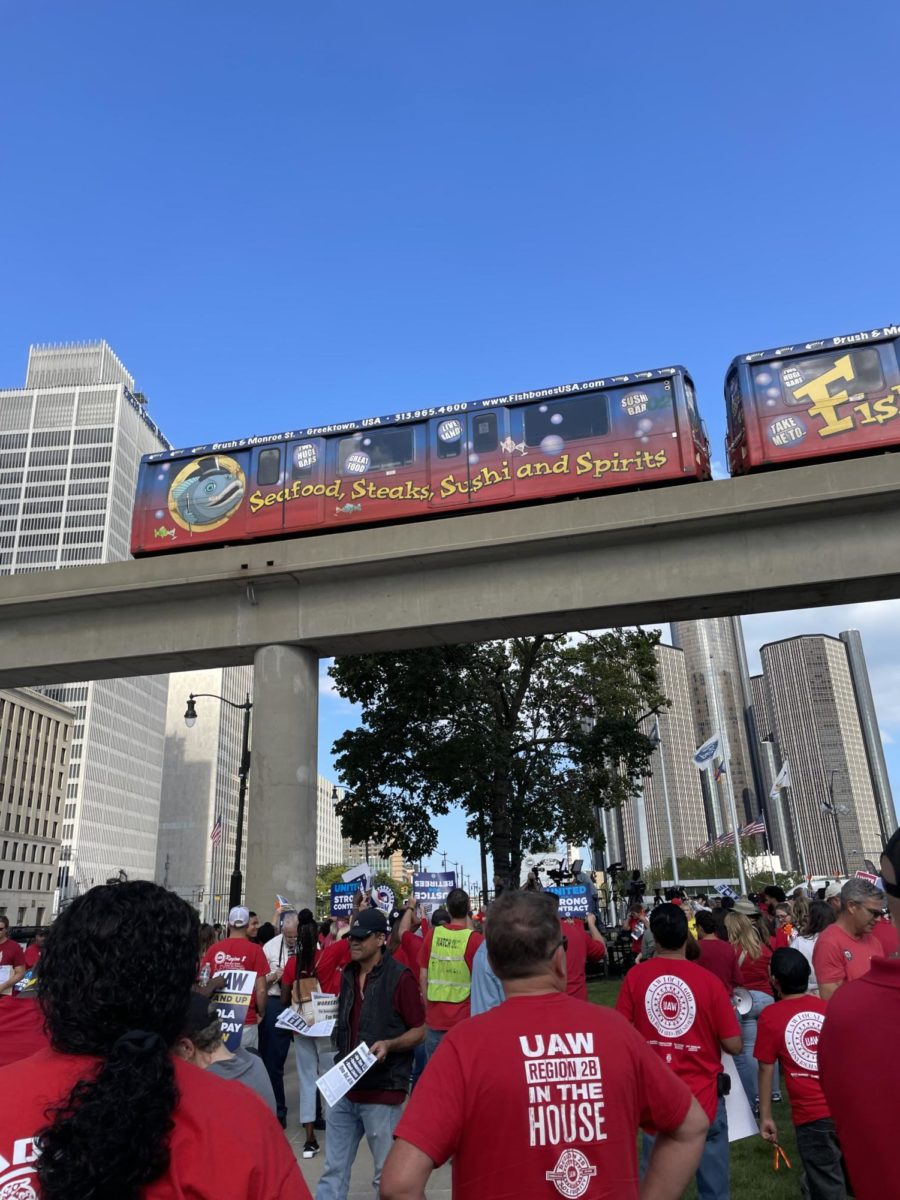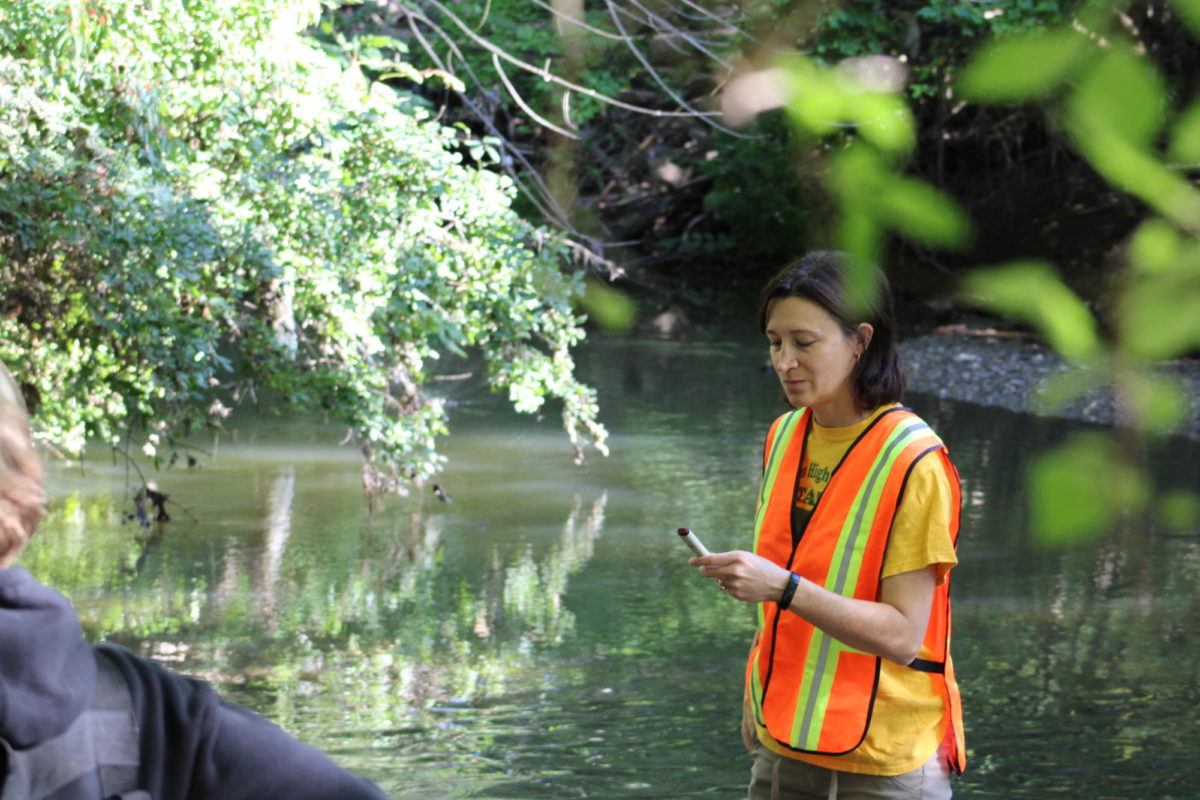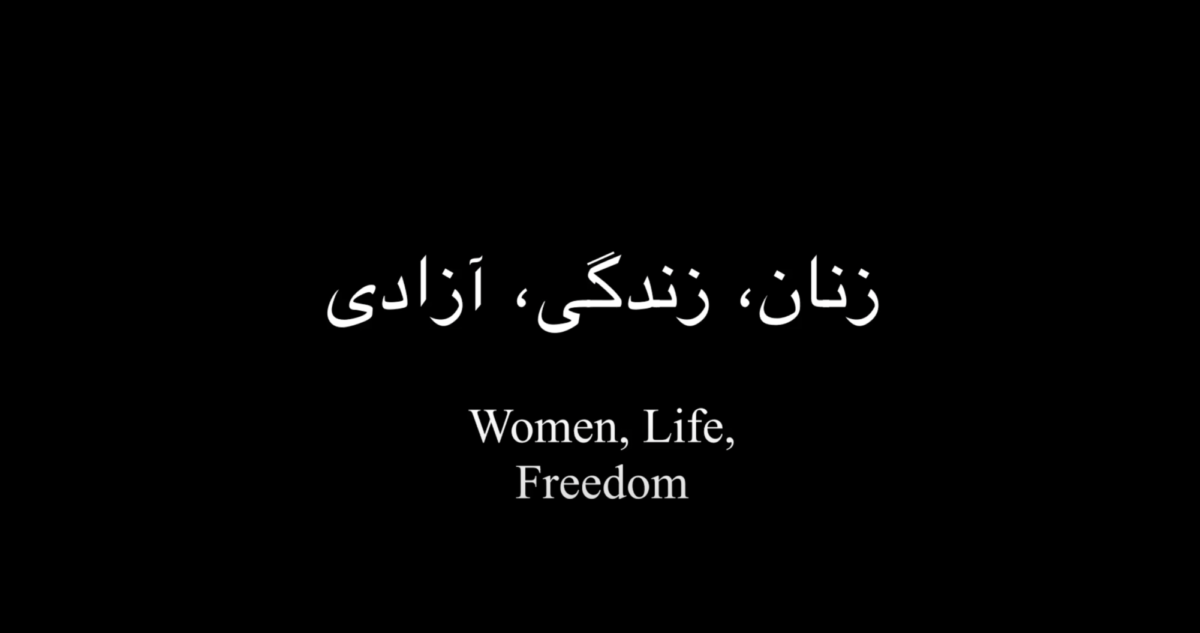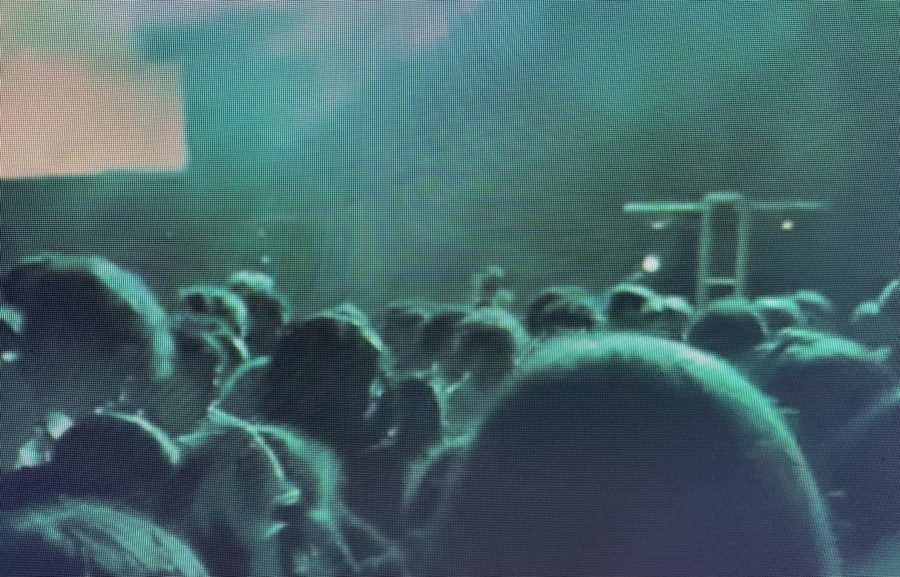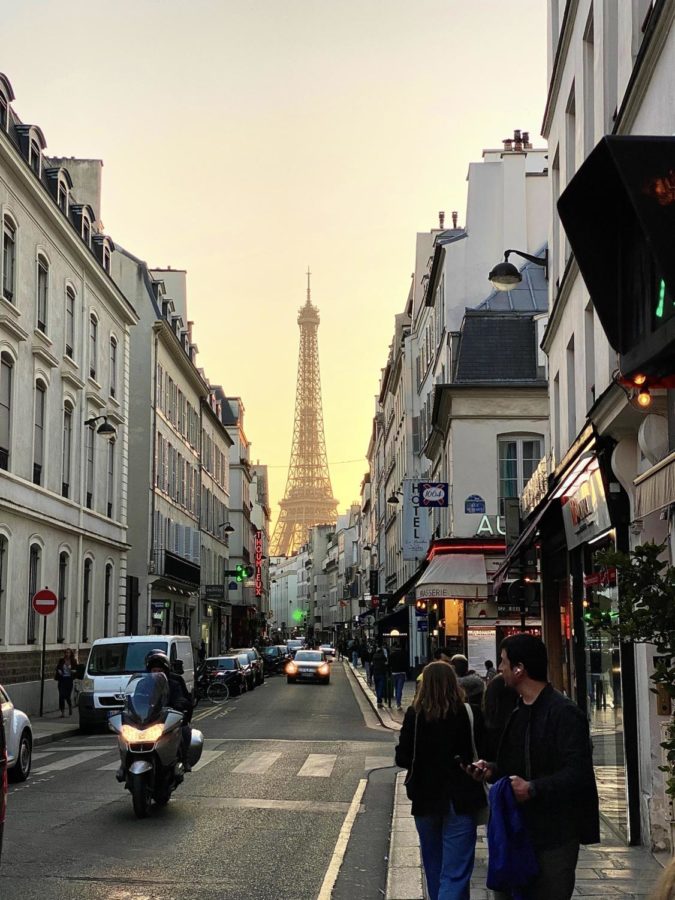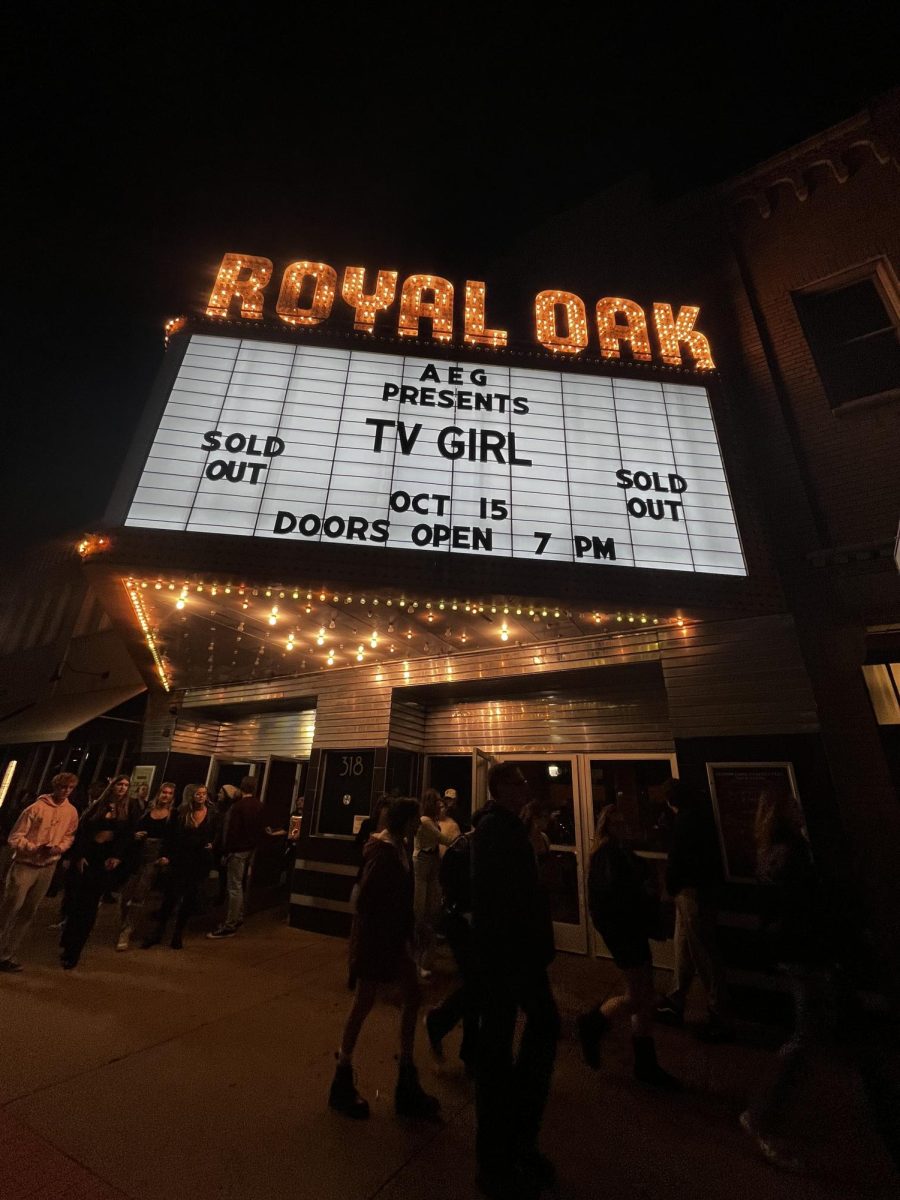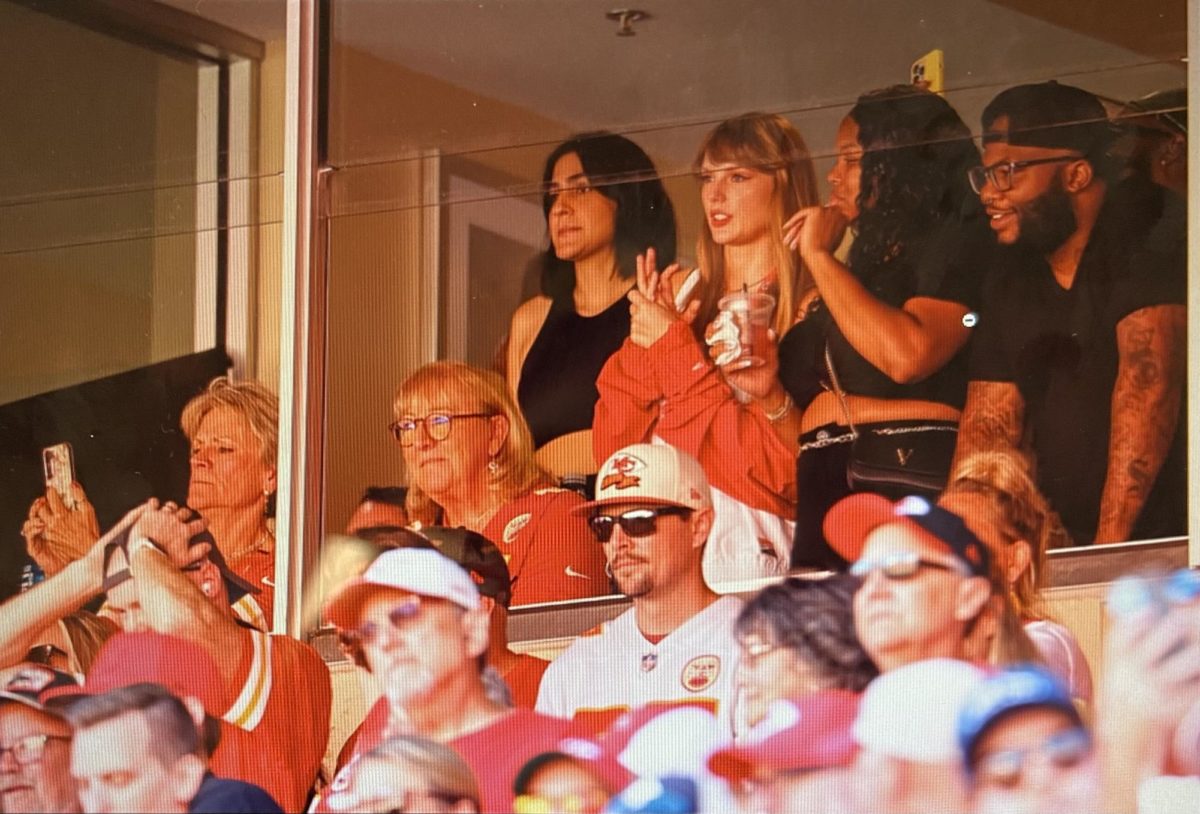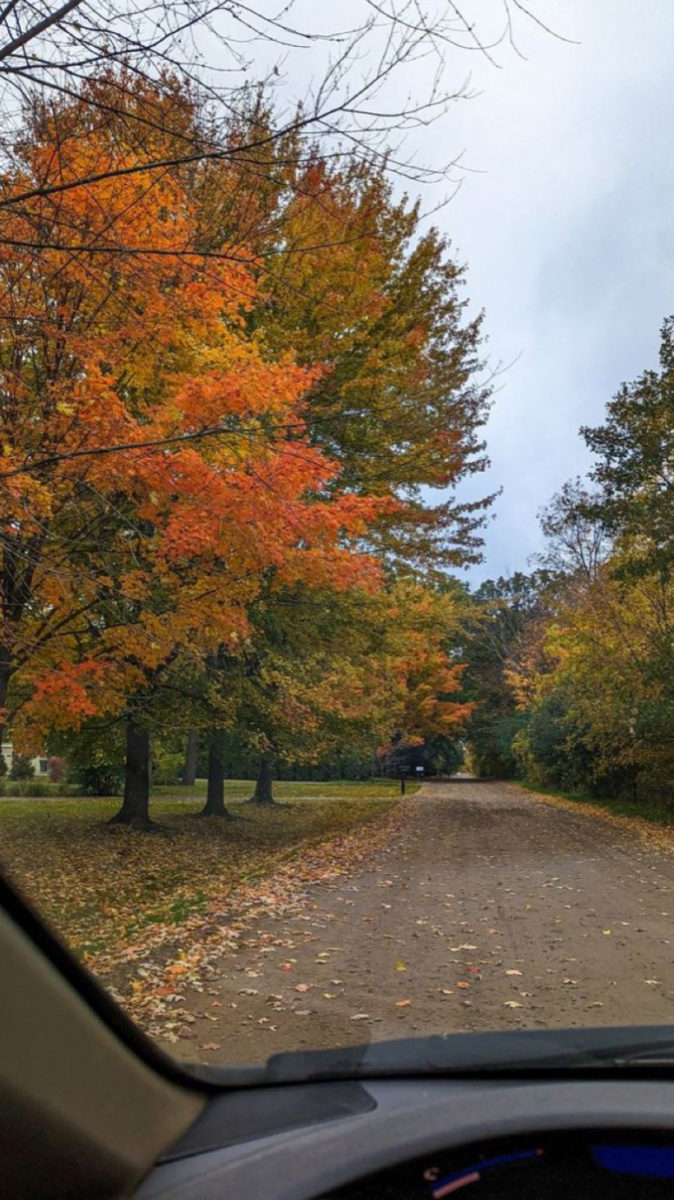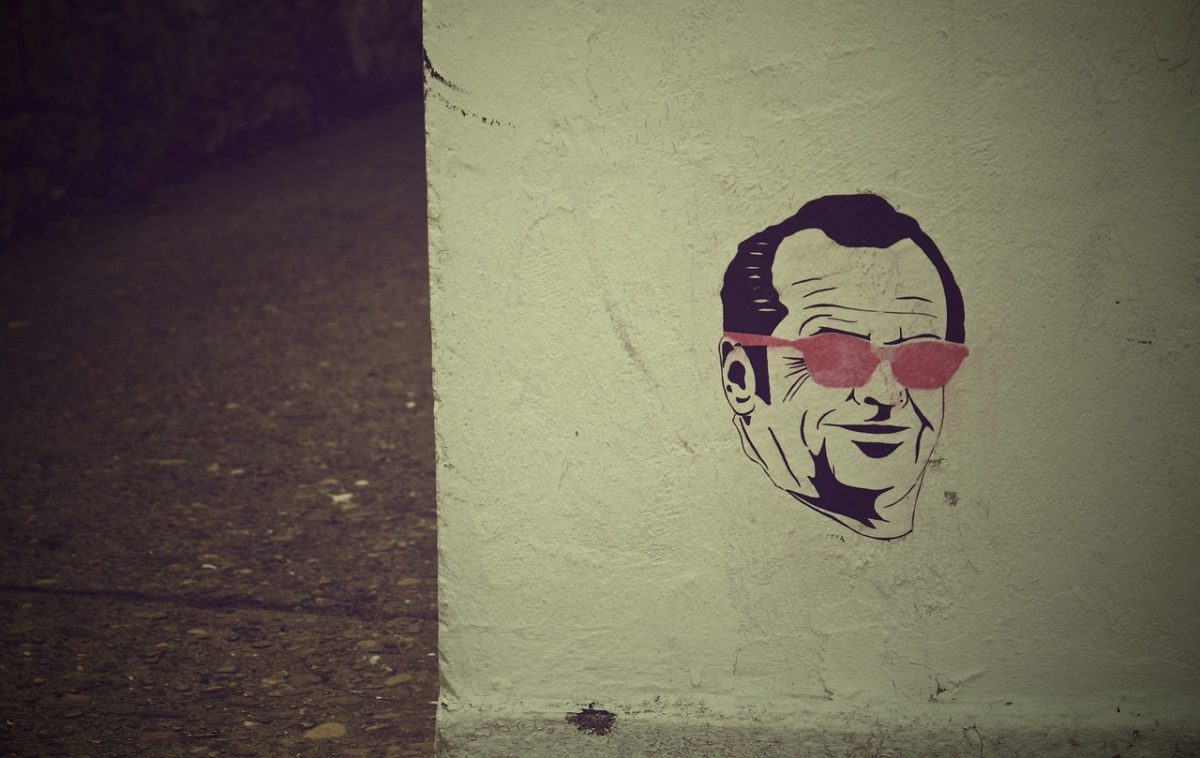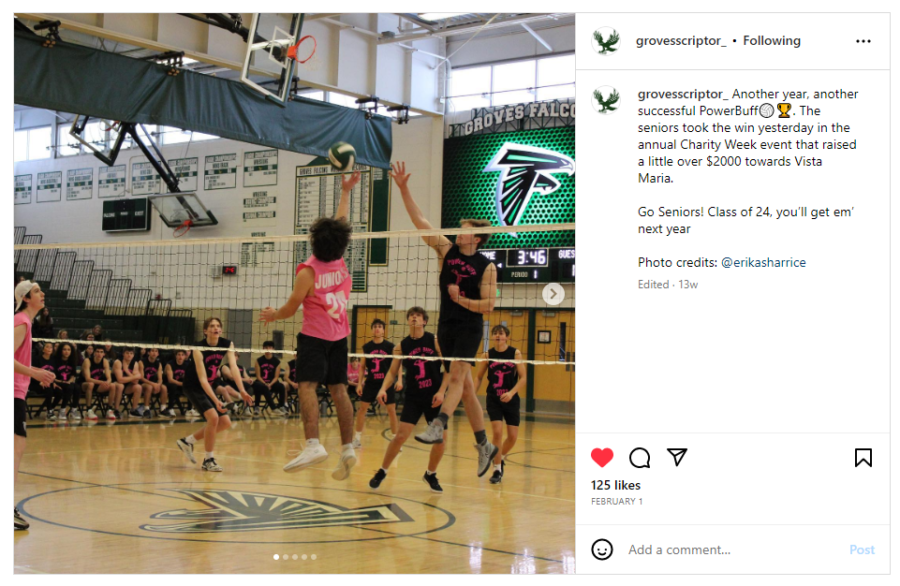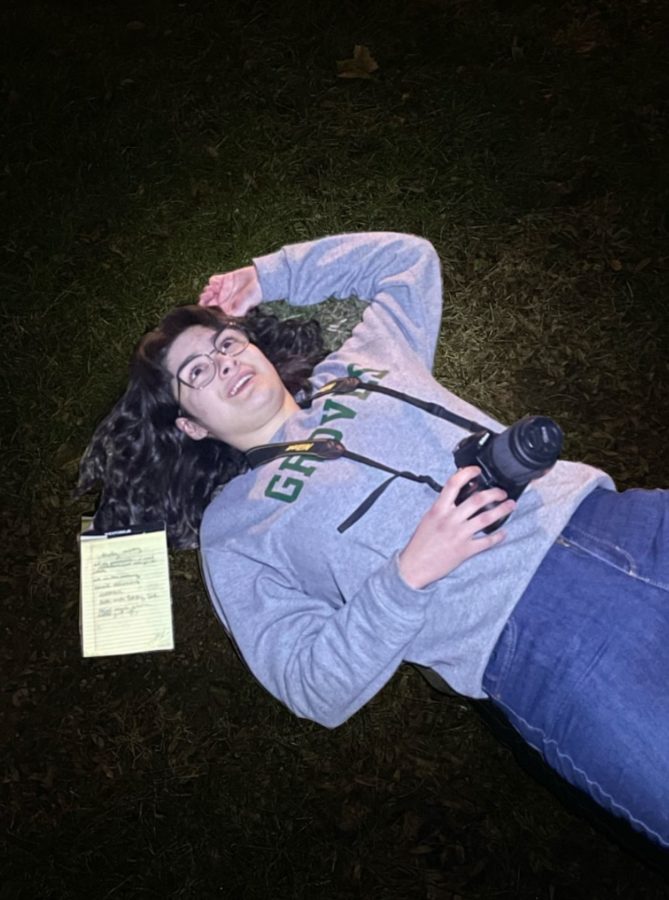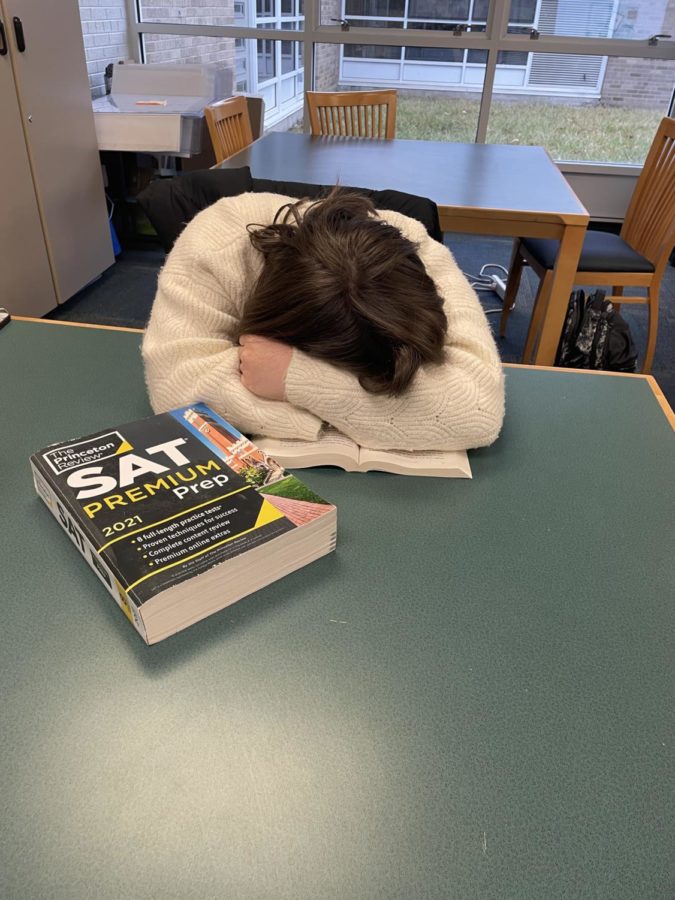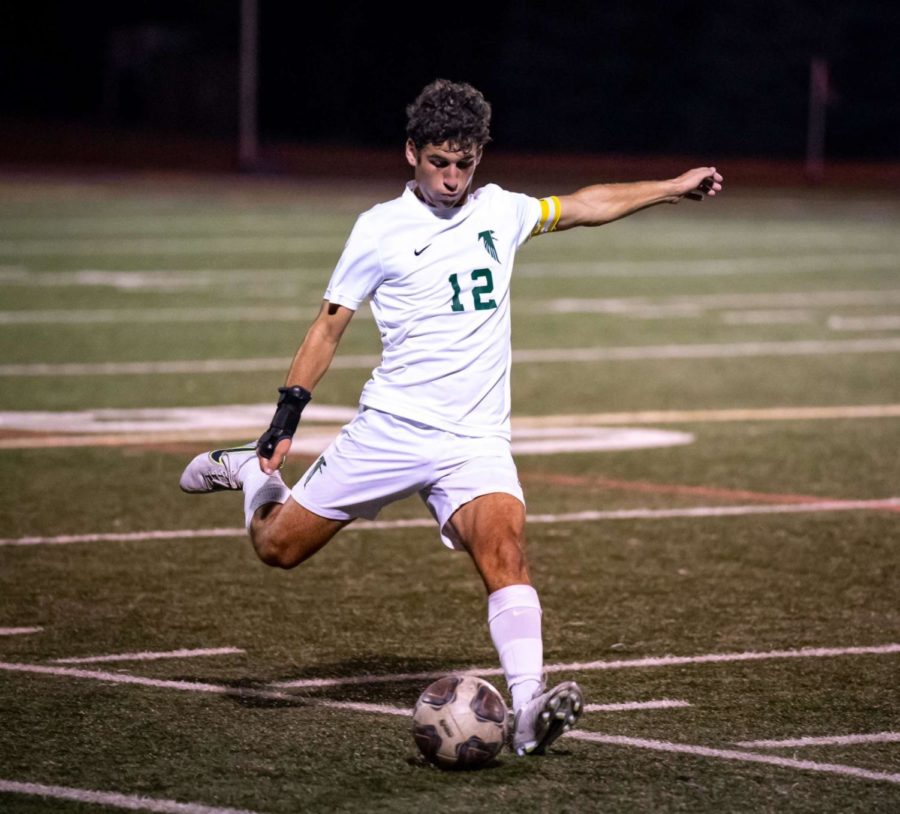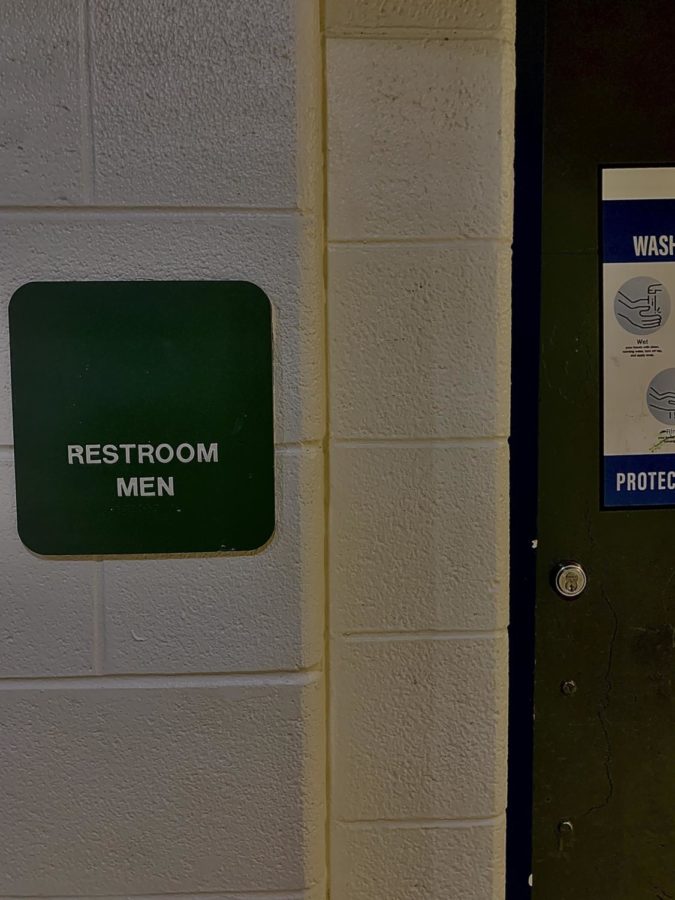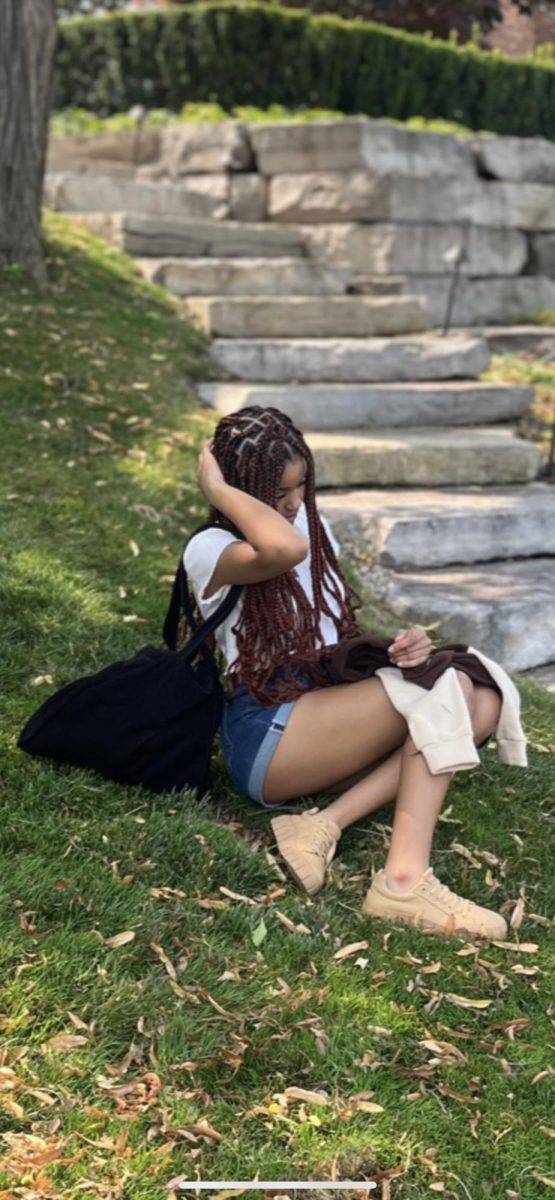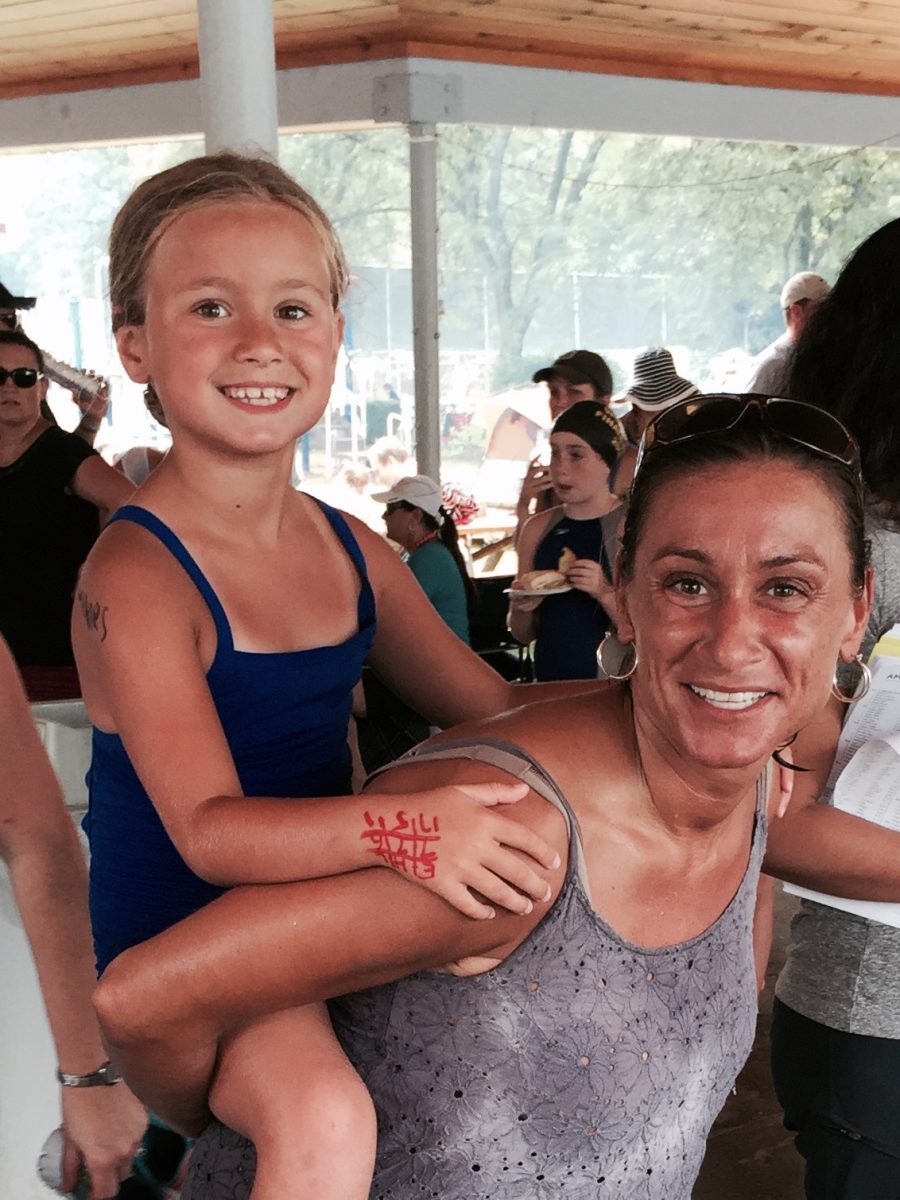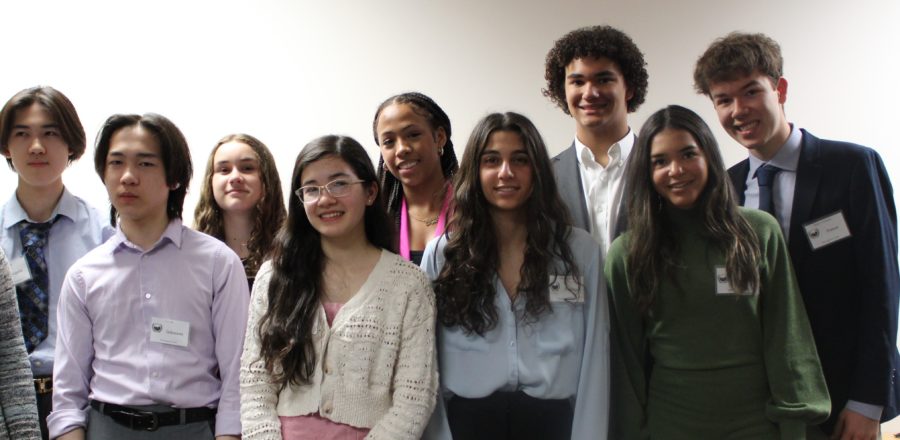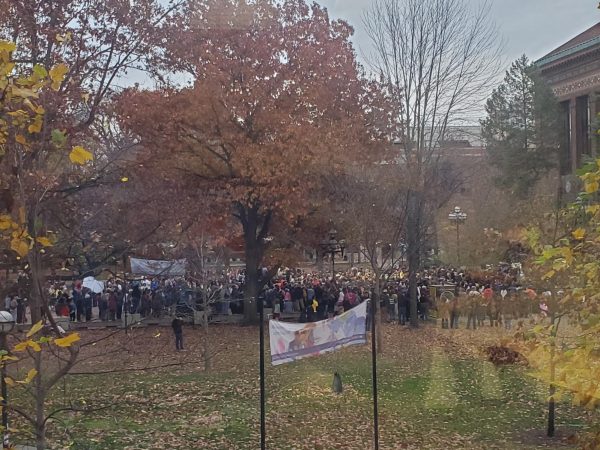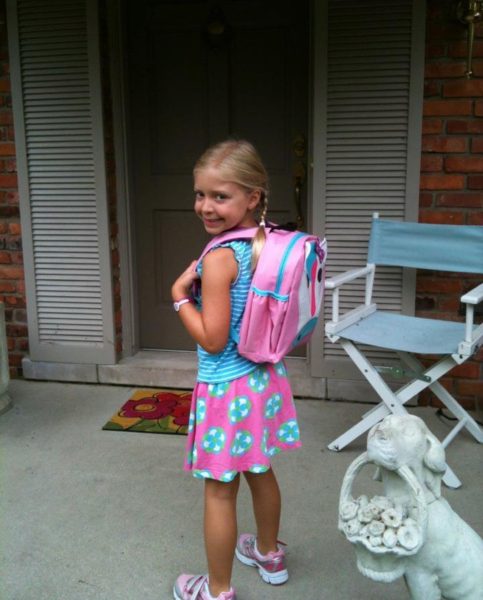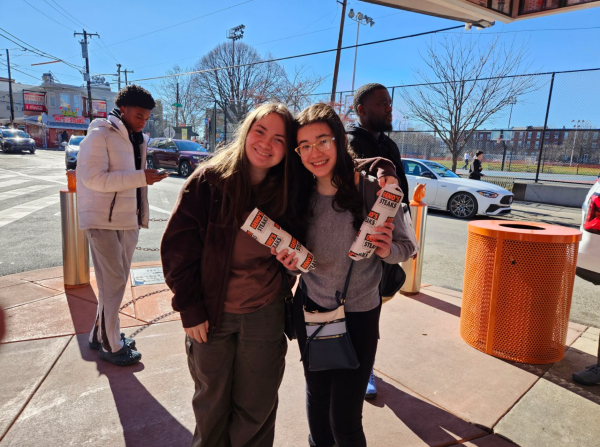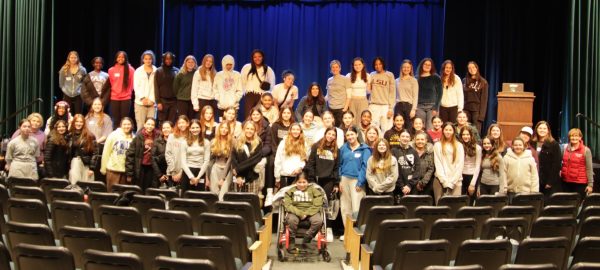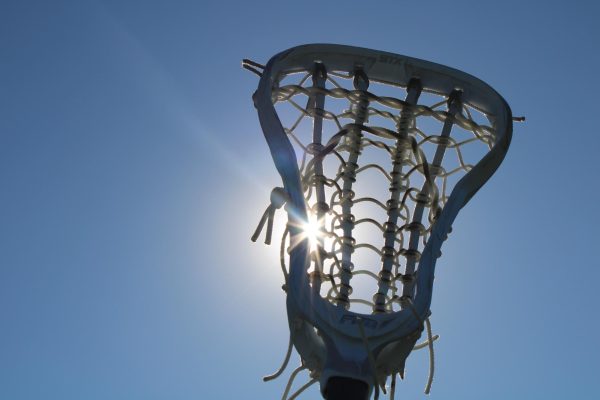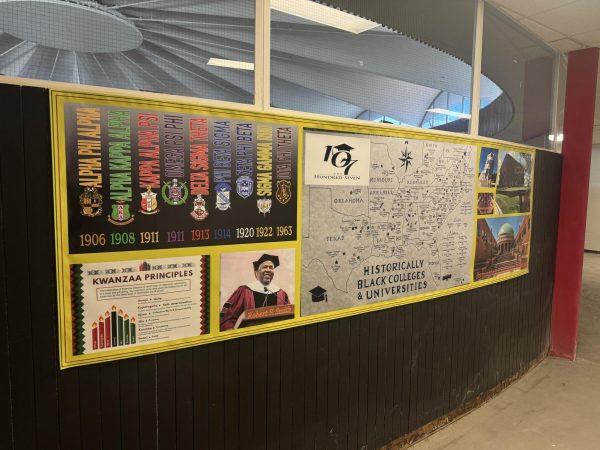Making Moves in Model U(N)
Proctor* scans the room and spies a country’s placard* waving high in the air…
“Bulgaria to what point or motion* do you rise?”
“I’d like to make a motion”
“Please state your motion.”
“Motion to vote on resolution A-1.”
“That is in order. All in favor?”
While this may sound like a reenactment of British Parliamentary procedures from the 19th century, it’s actually the sound of a mock UN assembly. Model United Nations (Model UN) is an extracurricular where members are given the task of representing different countries and then collaborating with others to deliver solutions to problems similar to how their country would deal with them. As a member, I can attest that Model UN teaches students how to give a speech, research topics, and collaborate with others.
Talking to a large group of people doesn’t seem like a hard thing to do when you see others doing it, but once all eyes are on you… it’s nausea-inducing. When everyone around you seems so good, you may panic (like I did at my first conference). Giving conference-wide lectures are the hardest part of any Model UN day.
Luckily, there are people there to help you. Fellow delegates* will offer assistance during times of need, and proctors will be on standby to avoid incidents. For example when you draw a blank or commit a non-serious faux pas* of speech, such as not saying a special formality before you ask a question or bring forward a point.
At Groves’ afterschool meetings (every other week from 3-4), we practice drafting speeches and responding to opposing nations’ in a formal manner, so we’re prepared for conferences.
On one particular weekend, our team was journeying to Walled Lake Western to compete in The Metro Detroit Model United Nations Spring Conference (or MedSec for short). After some short stressing and late-night Googling, I felt as ready to compete as the rest of my team! On May 20th, the team reunited at eight that morning and headed to the library for the opening ceremony. The president of (MeDSeC) spoke for a few minutes about the ins and outs of the event, then introduced a representative from the Department of State, Sarah Gallagher, who works with Bosnia and Herzegovina IRL.
Then, at eight o’clock, we all headed straight to a conference room, to start the first round of Model UN (Anti-Microbial Resistance for the Blue Comittee). Lucky me: I got seated in the front of the room (it’s super hard to slip out of the room here if you need to).
My friend and teammate, Charlisa Penzak, showed me the ropes and motivated me to create a document of information I might have needed. It includes the four essential categories of representing a nation: the country’s background (when was it formed, what is its history, etc.), what’s being done, the country’s stance, and possible solutions (which is where you as a well-researched individual come in)!

The first topic dealt with Anti-Microbial Resistance, which stresses the importance of monitoring antibiotic use so that viruses won’t become resistant to preventative medicine. For the majority of both topics, there was a lot of speaking with other delegates and randomly coming up to people asking “What are your thoughts on this?” or “Would you be willing to support that?”. It’s important to be comfortable talking to total strangers if you want to do this kind of dialogue back-and-forth work. This teaches you teamwork: you become better at talking to others, which helps you form an agreement that several countries (other delegates) will support.
After hours of hard work, our committee* was finished forming our action plans*. Many final resolutions* suggested introducing education for doctors and medical students on proper medical procedures, and creating UN-wide funds to help underdeveloped nations quell the use of antibiotics in the agricultural industry.

We had lunch, then immediately got back into it (11:50 am), starting conference two. The second topic was “The Situation in Cyprus”, which dealt with the dealings of who exactly owned Cyprus. This divisive problem dates back to 1955, and currently, there are no solutions to dissolving the tension between Greece and Turkey. I represented Uganda (in both committees), which meant I didn’t have a huge say in how things played out, but neither did a lot of other countries. That meant we were in a unique third-party situation. So, I and the delegates from other countries like mine all worked together to draft a resolution that would improve Cyrprus’ independent situation. This included the creation of a national sports team (unifying the country), a culture festival, and the construction of a new national flag (which was later scrapped in an amendment*). (This was just one of the four resolutions that we passed.)
Finally, we went to the awards ceremony (four thirty), which gave honorable mentions and certificates to the first and second-best delegates. Esteemed prizes like these are won by someone who speaks well, is involved in many resolutions, listens, and takes note of other students’ actions.
Two Groves students received awards: Charlisa won Second Best Delegate, representing Niger in the Green committee, and Alaina Williams won Best Delegate, for representing Greece in the Blue committee!
One thing that I found helpful was the country placards placed on our desks that had the different points of order*, and essential phrases on the back, such as “I’d like to make a motion”.
A problem with this conference is that there were so many unmoderated caucasus*, that there was never enough time to get through more than ten countries on the speaker’s list. (For reference, there are about 30-40 countries per committee.) Another unusual occurrence in this conference was that all resolutions passed. Delegates were also straying from the path that their country would normally be on. For example, countries known to be more conservative were open to resolutions that benefited everyone (including more liberal countries). This showed a clear bias between the delegate’s stance and the countries they were supposed to be representing. Overall, however, it was a great conference, perfect for beginners.
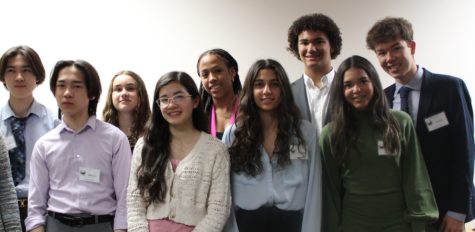
If you want to be involved in conventions like this, join Model UN! It’s so much fun to be a part of. Whether you’re a big or small country, you get to interact with new people and come up with solutions that might one day have a real-world impact. You also get to interact with other schools in a less-competitive manner than other district-wide events (like with any sport). And, in the end, you’ll walk away feeling more confident in your speaking and debating skills. I’m not one for making speeches (and that’s still true), but I’m improving. You will too if you join Model UN. Why not spend your Saturday making the world a better place?
Proctor– A professional Model UN moderator
Placard– A card to raise in voting or to make a motion/point with your country’s name
Motion– A movement or proposal to enact a topic
Delegate– A student who is representing a country
Faux Pas– A blunder or awkward incident (not a Model UN term, but important to know)
Committees– The different rooms conferences are broken up into (Blue, Green, etc.). These separate delegates by advancement and topic.
Action Plans– Papers detailing what we want to be done (similar to a resolution, but it explains more of the steps on how goals will be achieved).
Point of Order– One of the points asked when a speaker forgets something, such as skipping your resolution when it’s time to vote. (Proctors are only human, after all!)
Resolution– A formal declaration that details what you want to happen and how it would be maintained.
Amendment– A paper submitted to revise a resolution. This can include deleting a section, adding a section, or changing a word.
Unmoderated Caucasus– Denominations of time when you can walk around and speak to other delegates. (This is different than a moderated caucus, which is when speakers go up to talk in front of all the delegates, without one-on-one speaking time.)
Your donation will support the student journalists of Wylie E. Groves High School. Your contribution will allow us to purchase equipment and cover our annual website hosting costs.
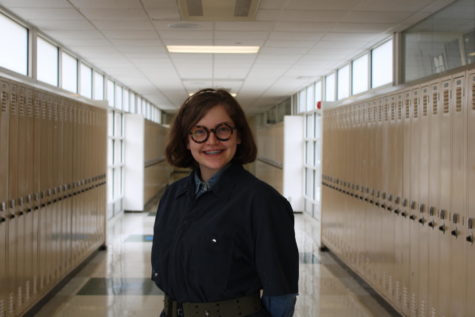
Growing up in a creative home, with her mother working as a writer and her father as a ceramicist, Helena Zweig has always been interested in the arts...



